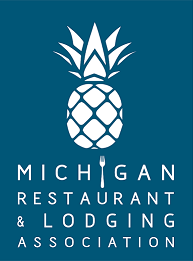Ask the Experts: PRO Act Impact on Franchise Businesses
|

Q: I have read about the PRO Act currently pending in Congress. If passed, how will it affect my franchise business?
A: The PRO Act is an acronym for Protecting the Right to Organize Act of 2021. Most relevant to franchisors, the PRO Act would change the National Labor Relations Act’s (“NRLA”) definition of: who is a “joint employer;” and who is an employee, versus an independent contractor.
We have written many times over the years about joint employer. Recall the drama over the last 6 years about joint employer status. A joint employer relationship exists when two or more persons “codetermine or share control over the employee’s essential terms and conditions.” In 2015, the National Labor Relations Board (“NLRB”) decided the Browning-Ferris case which held that a relationship that reserved indirect control over terms and conditions of employment is sufficient for a person to be a “joint employer,” reversing decades of case law that required that the control had to be direct and exercised in order to be held joint employers. After the 2016 federal election, the joint employer debate subsided, resulting in a 2020 action by the NLRB when it promulgated a new regulation returning joint employer standard to pre-Browning Ferris. The 2020 NLRB regulation requires that a party exercise substantial, direct, and immediate control over the essential terms and conditions of employment to be found to be a joint employer.
A: The PRO Act is an acronym for Protecting the Right to Organize Act of 2021. Most relevant to franchisors, the PRO Act would change the National Labor Relations Act’s (“NRLA”) definition of: who is a “joint employer;” and who is an employee, versus an independent contractor.
We have written many times over the years about joint employer. Recall the drama over the last 6 years about joint employer status. A joint employer relationship exists when two or more persons “codetermine or share control over the employee’s essential terms and conditions.” In 2015, the National Labor Relations Board (“NLRB”) decided the Browning-Ferris case which held that a relationship that reserved indirect control over terms and conditions of employment is sufficient for a person to be a “joint employer,” reversing decades of case law that required that the control had to be direct and exercised in order to be held joint employers. After the 2016 federal election, the joint employer debate subsided, resulting in a 2020 action by the NLRB when it promulgated a new regulation returning joint employer standard to pre-Browning Ferris. The 2020 NLRB regulation requires that a party exercise substantial, direct, and immediate control over the essential terms and conditions of employment to be found to be a joint employer.

The PRO Act would codify the Browning-Ferris decision.
“Two or more persons shall be employers with respect to an employee if each such person codetermines or shares control over the employee’s essential terms and conditions of employment. In determining whether such control exists, the Board or a court of competent jurisdiction shall consider as relevant direct control and indirect control over such terms and conditions, reserved authority to control such terms and conditions, and control over such terms and conditions exercised by a person in fact: Provided, that nothing herein precludes a finding that indirect or reserved control standing alone can be sufficient given specific facts and circumstances.”
The risk to franchisors is that a franchisor could be a joint employer with its franchisees for all of the franchisees’ employees. Franchisors could be jointly liable for NLRB violations, or other employment liability and even all other types of liability that are currently held by the franchisees alone. This joint employer risks can affect not only franchisors, but other multi-unit restaurant groups that operate multiple locations under similar ownership structures.
Care must be taken in all of these types of businesses and their operations to ensure that current business practices do not expose the businesses to joint employer liability.
“Two or more persons shall be employers with respect to an employee if each such person codetermines or shares control over the employee’s essential terms and conditions of employment. In determining whether such control exists, the Board or a court of competent jurisdiction shall consider as relevant direct control and indirect control over such terms and conditions, reserved authority to control such terms and conditions, and control over such terms and conditions exercised by a person in fact: Provided, that nothing herein precludes a finding that indirect or reserved control standing alone can be sufficient given specific facts and circumstances.”
The risk to franchisors is that a franchisor could be a joint employer with its franchisees for all of the franchisees’ employees. Franchisors could be jointly liable for NLRB violations, or other employment liability and even all other types of liability that are currently held by the franchisees alone. This joint employer risks can affect not only franchisors, but other multi-unit restaurant groups that operate multiple locations under similar ownership structures.
Care must be taken in all of these types of businesses and their operations to ensure that current business practices do not expose the businesses to joint employer liability.





